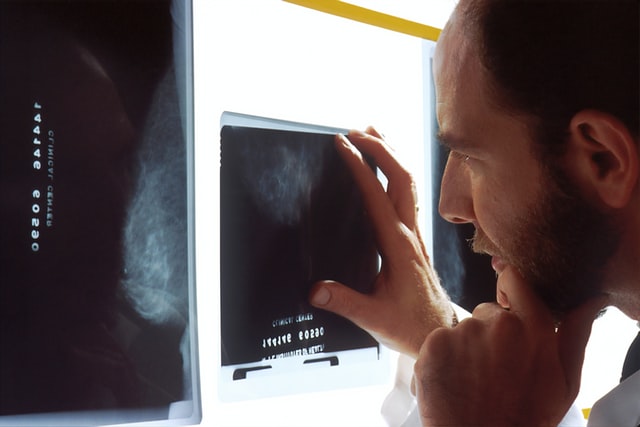How to Become a Medical Imaging Technician

The medical field is composed of a variety of roles. From physicians and nurses to the administration, every component of the health delivery system is important for providing patient care. Medical imaging has been around for many years, but the equipment that we have today gives medical clinicians a better look inside the human body. Pursuing a career in medical imaging requires some training and clinical experience. It is a career that allows you to help those in need and make a difference in patients’ lives. As a medical imaging technician, you will work closely with both patients and doctors to diagnose disease and create treatment plans.
There are many different types of career paths for medical imaging technicians. If you are looking for a rewarding career, then a career as a medical imaging technician may be right for you.
What Do Medical Imaging Technicians Do?
Medical imaging technicians are responsible for the collection and analysis of bodily fluids, tissues, and other materials. Technicians collect information from specialized equipment that helps health care professionals diagnose patients. Where radiology technicians work with radiation and perform exams using equipment like X-rays, sonography technicians work with sound waves and is a more hands-on role. Typical duties of a medical imaging technician include:
- Studying blood samples and identifying blood types and cell morphology to establish compatibility with other blood types.
- Analyze bodily fluids, including samples of blood, urine, and tissue and record findings.
- Record data from medical tests and update patients’ electronic medical records.
- Use sophisticated equipment for analyses.
- Discuss test or procedure findings with doctors.
- Train and supervise new medical technicians.
Medical imaging technicians may also specialize. Although radiology and sonography are two of the most popular career paths, technicians may also specialize in mammography, radiation therapy, magnetic resonance imaging (MRI), nuclear medicine, and computed tomography (CT). Specialization improves earning potential and opportunities for employment.
How to Become A Medical Imaging Technician
Although education requirements vary by state, technicians typically need an associate’s degree or a postsecondary certificate. Certification requirements also vary by state; however, most states typically require medical imaging technicians to be certified and licensed to work.
Medical imaging technicians typically finish an associate’s degree in laboratory sciences. Many hospitals provide 1-year certificate programs and admission requirements are unique to the institution. There are also technical and vocational schools that offer certificate programs for medical imaging technicians. In general, coursework involves understanding theoretical and functional aspects of major laboratory regulations. The curriculum involves material from patient care education, anatomy, physics, image production, and pathology.
Individuals interested in becoming a sonographer will have to complete a medical imaging program from an accredited program and pass a certification exam. Those interested in becoming a radiology technician also have to graduate from an accredited program and pass an exam. The Joint Review Committee on Education in Radiologic Technologists (JRCERT) is an accrediting agency for degree programs. Some states require technicians to be accredited by this organization. Exams can also be administered by the state or through The American Registry of Radiologic Technologists (ARRT).
Roughly 30 states currently require ARRT certification to receive licensure. ARRT certification is also the standard for many health care providers. Starting in 2014, students are required to have an associate’s degree to take the certification exam. These differing requirements mean it is important to contact the state health board for specific education and certification requirements.
Important skills that medical imaging technicians should have include being:
- Technologically savvy
- Hand-eye coordination
- Physical fitness
- Attention to detail
- Strong interpersonal skills
Additionally, the ARRT requires medical imaging technicians to complete 24 elements of continuing medical education every two years. Technicians may also take an exam instead of the continuing education.
Career Paths
Several medical imaging career paths are available, so it is important to know the areas of medicine that interest you. Here are a few of the most popular career paths for medical imaging technicians.
Ultrasound Technician. Ultrasound technicians use high-frequency sound waves to produce pictures of the body. Equipment used as an ultrasound technician gathers important information for physicians to evaluate. An ultrasound technician can become specialized in:
- Abdominal sonography
- Neurosonography
- Echocardiography
- Obstetrical and pelvic sonography
- Vascular sonography
According to the Bureau of Labor Statistics, the median salary for ultrasound technicians is $75,510.
Radiologic Technician. Radiology technicians use diagnostic equipment such as X-rays to produce medical images. Radiology technicians may work alone or with physicians and can become specialized in:
- Magnetic resonance
- Cardiovascular interventional technology
- Mammography
- Computed tomography
According to the Bureau of Labor Statistics, the median salary for radiologic technicians is $59,2018.
Nuclear Medicine Technician. Nuclear imaging technicians use radiopharmaceuticals, computers, and scintillation cameras to capture and quantify different processes in the body. After collecting data, these technicians help with analyzing the results. According to the Bureau of Labor Statistics, the average salary for nuclear medicine technicians is $76,820.
Job Outlook
Medical imaging plays a critical role in the health care system. The knowledge and skills required for this job are in high demand, and medical imaging technicians can work in several health care settings. The Bureau of Labor Statistics projected that jobs in the medical imaging field will grow 13% over ten years, from 2016 to 2026. If you love to care for others and are looking for a career that is rewarding in more than one way, then medical imaging might be the perfect fit for you.
